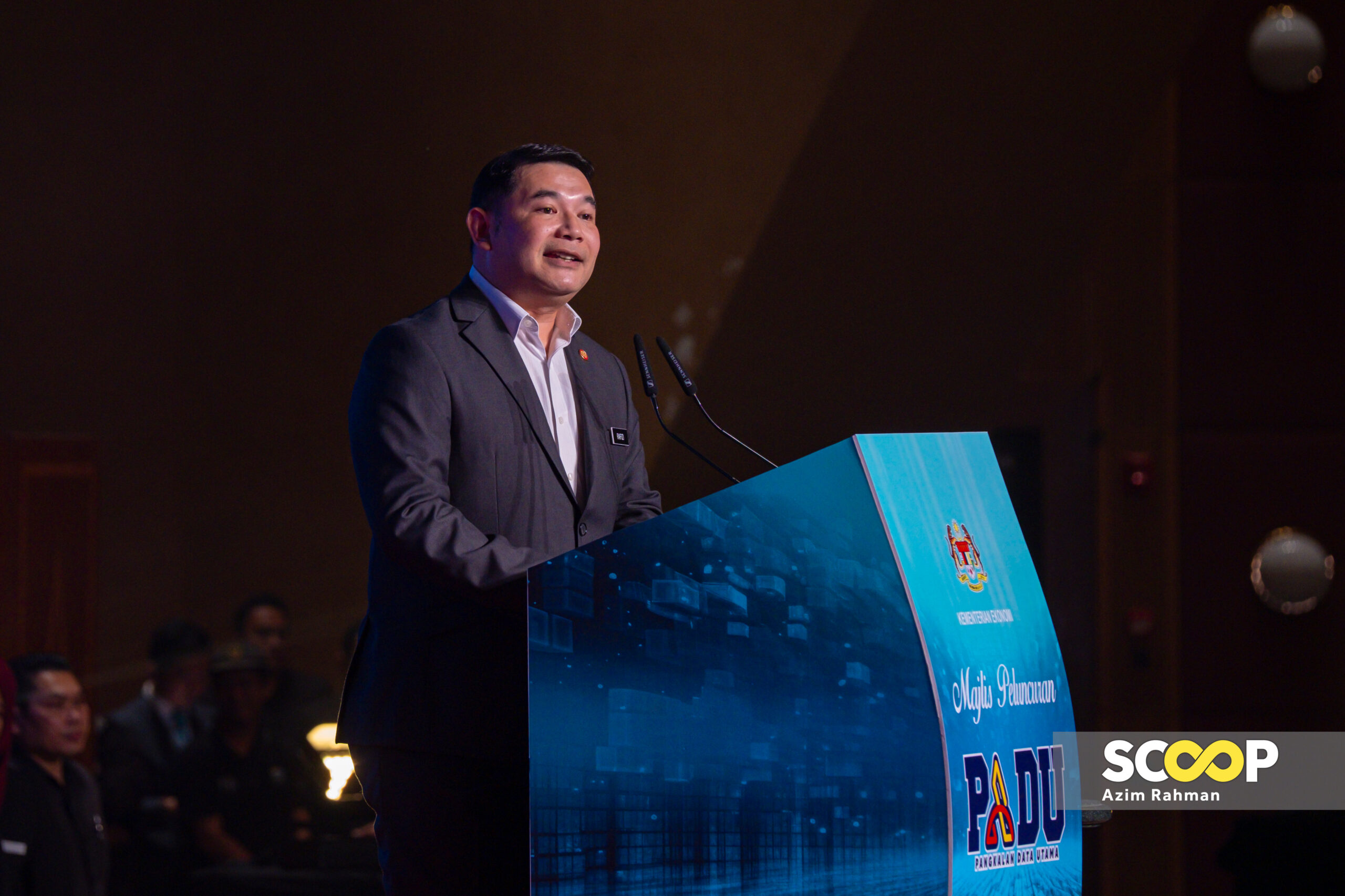

Hailed as a reformist when he entered government, Rafizi Ramli now finds his credibility in question as critics say his tenure as Economy Minister was marked more by missed opportunities than meaningful delivery. - Scoop file pic, October 3, 2025
OPINION/ANALYSIS
Rafizi Ramli: A singles player in a team sport — Terence Fernandez
He commanded the imagination of millions but the former Economy Minister self destructed in a sea of disgruntlement and confusion

Terence Fernandez
Updated 14 hours ago
3 October, 2025
8:00 AM MYT
OPINION/ANALYSIS
Rafizi Ramli: A singles player in a team sport — Terence Fernandez
He commanded the imagination of millions but the former Economy Minister self destructed in a sea of disgruntlement and confusion

Terence Fernandez
Updated 14 hours ago
3 October, 2025
8:00 AM MYT
DATUK Seri Rafizi Ramli entered the Unity Government in 2022 with high expectations and a reputation as a policy master armed with data-driven approaches and a reformist zeal.
Positioned as Economy Minister, he was seen as a crucial player in Prime Minister Datuk Seri Anwar Ibrahim’s administration, particularly in areas of subsidy reform, cost of living and economic restructuring.
But two years later, the results — or lack thereof — tell a different story.
One of Rafizi’s most talked-about responsibilities was the subsidisation plan, particularly fuel subsidies.
Whilst politically sensitive but economically it is a necessary reform. Despite months of discussion, white papers, and public engagements, the plan never materialised under his leadership.
Of course, the Cabinet takes collective responsibility, but this was his KPI.
In the end, the Ministry of Finance had to eventually take over the rollout, implying that the Economy Ministry under Rafizi could not get it off the ground.
If Rafizi had the vision, where was the implementation? Did he lack the political will, the administrative machinery, or simply the execution strategy?
Several academics and observers chimed in when asked about this by Scoop. Their take was not surprising.
Schemes like SARA, BUDI95, and others were meant to help the lower-income groups navigate inflation and targeted subsidy transitions. These programs, led or co-announced by other ministries such as Finance and Domestic Trade, lacked the visible coordination or backing of the Economy Ministry during Rafizi’s time.
Rafizi’s absence in explaining these initiatives to the public led to confusion and further fueled public distrust.
Ironically, he is now criticising these very programmes after he resigned following his loss in the PKR Deputy Presidency race.
Rafizi’s recent criticisms of government decisions — particularly on subsidy mechanisms and economic aid — ring hollow when juxtaposed against his own underwhelming track record as a minister.
The embarrassment that is the RM85 million Central Database Hub (PADU) and the Inisiatif Pendapatan Rakyat (IPR), which came with a RM250 million allocation in Budget 2025, begs scrutiny.
No one questions Rafizi’s intelligence, his grasp of numbers, or his command of policy language. But with that brilliance comes responsibility.
When a former key minister becomes his own government’s most vocal critic, investors pay attention. And not in a good way.
Question to Rafizi: Where were you and what were you doing for the last two years?
If he had genuine disagreements with Cabinet direction, why not voice them then? Why only now? And risk being labelled a sour grape.
Rafizi had the rare combination of public trust, technical credibility, and a reformist brand. But as a minister, he was largely invisible during key economic moments.
In contrast, Anwar, who is also Finance Minister and others such as Finance Minister II Datuk Seri Amir Hamzah Azizan, Minister of Investment, Trade and Industry Datuk Seri Tengku Zafrul Abdul Aziz and Domestic Trade and Cost of Living Minister Datuk Armizan Mohd Ali, took the lead on critical matters such as fiscal reforms, inflation control, and rakyat-focused aid programmes.
Rafizi’s lack of presence during floods, price hikes, and subsidy confusion periods left many wondering: Was he too focused on theory and not grounded in pragmatism?
Now, out of government and out of PKR’s upper leadership, Rafizi seems more interested in throwing potshots at former colleagues than reflecting on his own shortcomings. The bitterness of his tone reflects more of a wounded politician than a constructive voice for reform.
And in the end, his legacy as Economy Minister may be defined more by what wasn’t done than by what was. — October 3, 2025
Terence Fernandez is Editor in Chief of Big Boom Media, which publishes Scoop. He believes Rafizi has the goods to be an effective Minister and leader, but needs to grow up.
He may become like PKR's equivalent of Palani Ramasamy
ReplyDeleteHe should retire from politics and be appointed Auditor General.
ReplyDelete